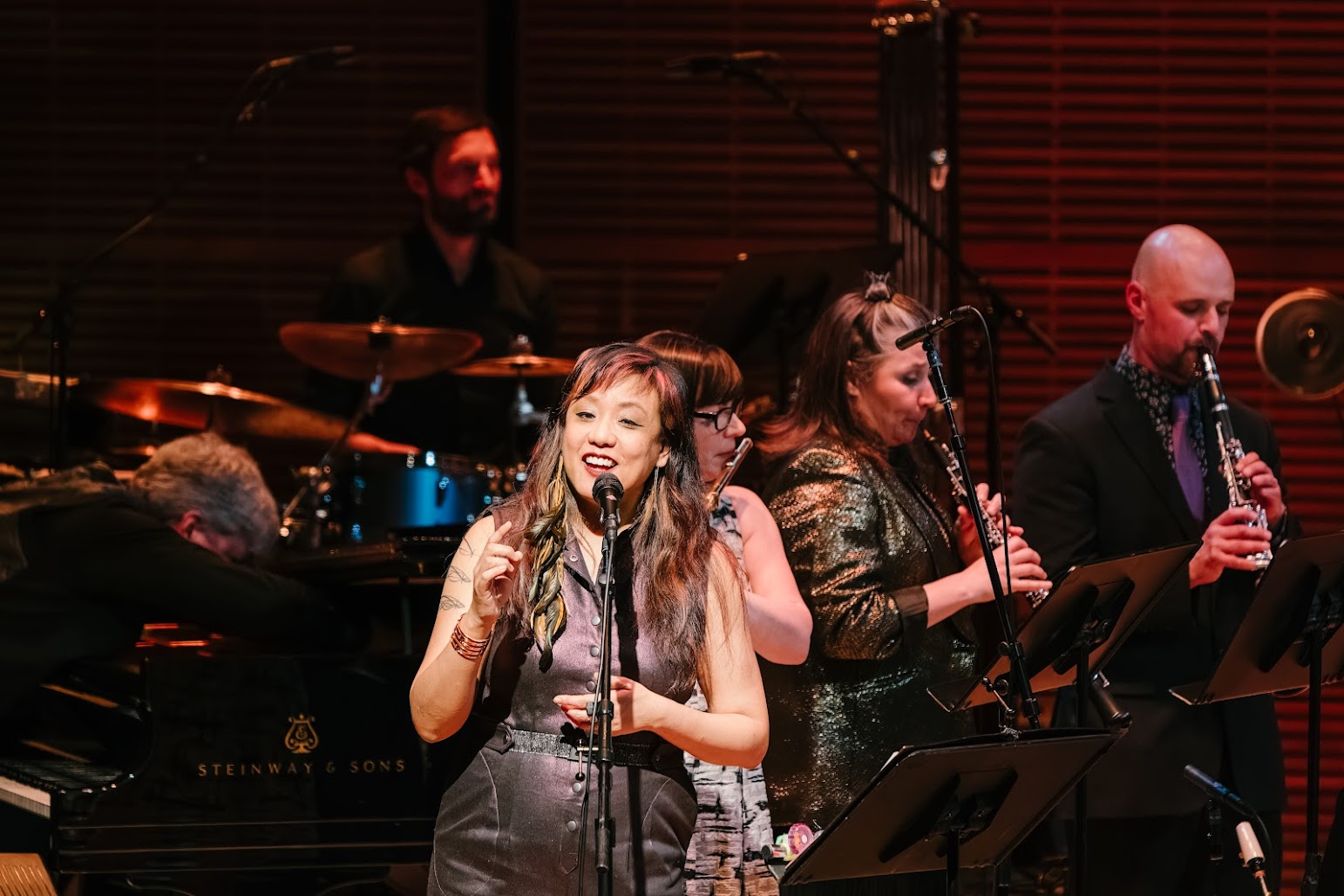Prof. Bora Yoon Makes Her Carnegie Hall Debut
The Korean-American composer, vocalist, and multi-instrumentalist presented her song cycle Casual Miracles to an enraptured audience.
At first glance, the bike bell tree—an instrument invented by Prof. Bora Yoon [music]—looks like nothing more than bike bells strapped to a pole. Yet to Yoon, it is something more: a direct line to a deity.
“To me, it just sounds like a telephone,” Yoon says of the bike bell tree, which features in her song cycle Casual Miracles. “That’s actually how it’s used in Casual Miracles—to initiate a telephone call with God, or a pontification of what it might look like in heaven when She passes out souls.”
Last March, Bora and the bike bell tree made their Carnegie Hall debut, unleashing the multifaceted splendor of Casual Miracles on a sold-out audience (as part of the Heard concert series). It was a landmark moment in Bora’s career, spotlighting her versatility, her spiritual depth, and her determination to obliterate the boundaries imposed on symphonic music.
“The symphonic world has been in a pit of concern for as long as I can remember,” Bora says. “They’re always like, ‘We have blue-haired donors that are going to die very soon, and once they do, who is going to fill these audience seats? How do we get young people to like orchestra music?’ But it’s the culture. It’s this entire thing of being trusted with the keys to the Lamborghini.”
When Bora is at the wheel, she drives audiences and musicians alike to mesmerizing destinations, whether she’s recruiting bicycling sopranos to sing in doppler effect or translating her fascination with the divine feminine and the miracle of birth into music—two themes that flow through Casual Miracles.
Bora began work on Casual Miracles when she was a graduate student at Princeton University, creating a work composed of five songs—“The World is Held Together by Invisible Knots,” “Day of the Dead,” “Soul Lottery,” “Two Wolves,” and “Three Ways to Look at the Ocean.” They’re bound together by her narration, which is rife with mischievous asides like “God is a crafty bitch,” inspired by the Rev. Edwin Chinery at New York’s progressive Church of Ascension, which Bora describes as her musical and spiritual home.
Performed by the contemporary music ensemble Alarm Will Sound, Casual Miracles sees Bora drawing upon an eclectic panoply of collaborators and influences: Merrill Garbus’ eclectic music project Tune-Yards, Aussie electronic producer Ben Frost, and the South Korean musical storytelling tradition of Pansori.
After bringing Casual Miracles to Carnegie, Bora is continuing to push symphonic music beyond what she calls “the canon of the dead white European male.” She continued that quest in August, premiering her latest orchestral experience, PARHELION, at the Cabrillo Festival of Contemporary Music in Santa Cruz.
For Bora, playing Carnegie Hall was a milestone in a long journey. “On a personal level, I cherished the full-circle nature of living out a childhood dream to ‘make it’ to Carnegie one day,” she says. “[I feel] very blessed and grateful for the wonderful musicians I got to be on stage with…while also honoring all the amazing women in my life, focused on the casual miracle of giving (and fostering) life.”
